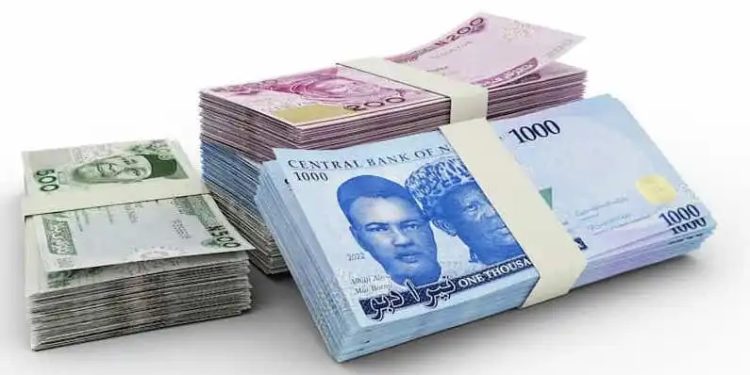The Nigerian naira remained relatively steady in the first trading session of the week, despite mounting pressure from the strengthening U.S. dollar and stronger-than-expected economic data from the United States.
Over the weekend, the naira traded within the N1,650–N1,660/$ range in the parallel market across major Nigerian cities, while its value slightly weakened in the official foreign exchange market.
Exchange Rate Trends
Data from the FMDQ Securities Exchange revealed that the naira depreciated to N1,543/$1 by the close of Friday’s trading, a slight drop from N1,541.2/$1 recorded on Thursday. This decline reflects the broader trend of dollar strength, which has been a source of concern for Sub-Saharan African economies, including Nigeria, where imports are heavily reliant on the U.S. currency.
The dollar’s rally is underpinned by robust U.S. employment figures, which have raised expectations that interest rates in the world’s largest economy will remain high for a longer period.
Implications for Nigeria’s Economy
The rising U.S. yields are set to pose challenges for Nigeria, especially in servicing its dollar-denominated debt. Last week, the yield on the benchmark U.S. 10-year Treasury note surged to 4.73%, marking its highest level since April 2025. This increase could exacerbate Nigeria’s fiscal difficulties by raising borrowing costs.
Furthermore, the dollar’s strength is likely to deepen dollar shortages in Nigeria’s foreign exchange market, potentially leading to greater naira volatility. This could result in higher import costs and inflation, placing additional strain on consumers and businesses already grappling with rising expenses.
Global Market Dynamics
The dollar index opened Monday’s trading in London at its strongest level in 24 months, fueled by December’s U.S. nonfarm payroll data, which exceeded market expectations. Analysts believe the robust labor market and persistent inflation may compel the Federal Reserve to maintain its cautious approach to interest rate adjustments in 2025.
Last week’s Federal Reserve minutes revealed that policymakers are increasingly concerned about inflation risks, despite some progress in curbing price pressures. The release of U.S. consumer price index (CPI) data this Wednesday is expected to provide further insight into future interest rate decisions.
Analyst Projections
Goldman Sachs analysts have revised their interest rate forecast for 2025, now expecting two rate cuts instead of the three initially predicted. The evolving economic landscape highlights the challenges faced by emerging markets like Nigeria, which must navigate the ripple effects of U.S. monetary policy while addressing domestic fiscal pressures.
As the naira continues to contend with the dollar’s firepower, both businesses and consumers are bracing for further economic headwinds in the months ahead.










